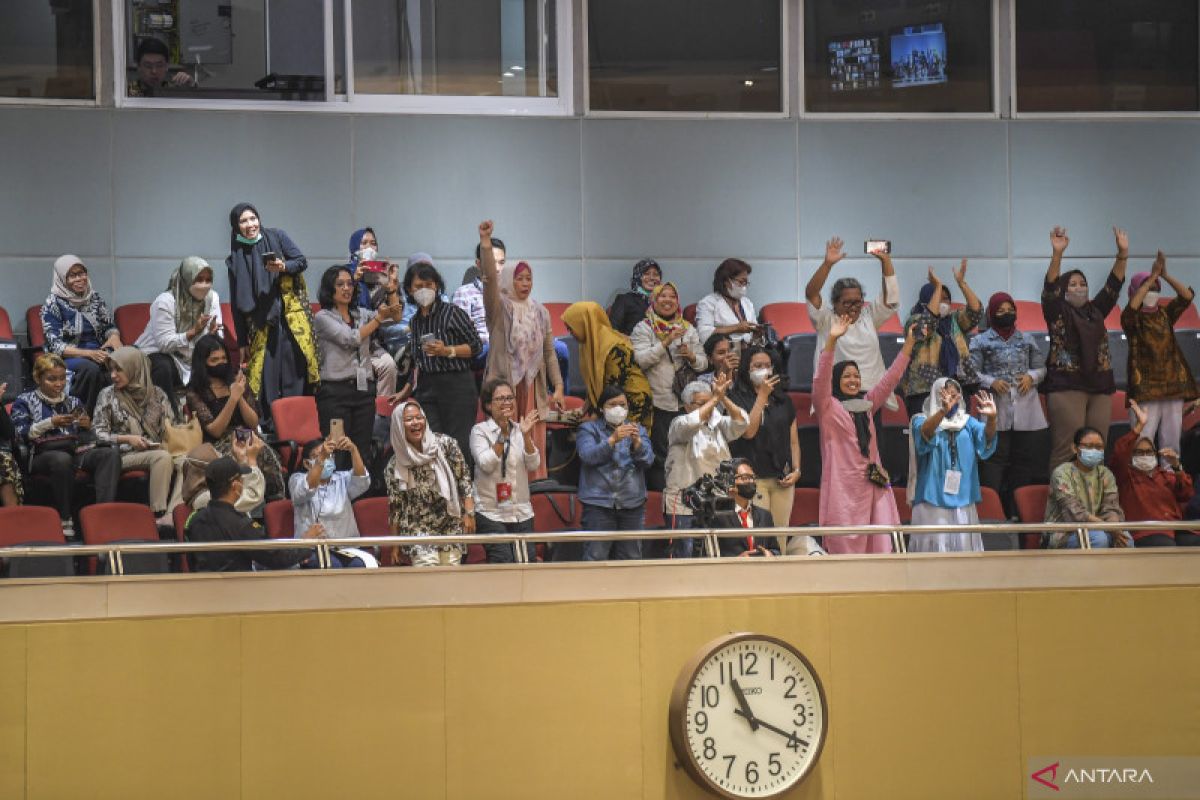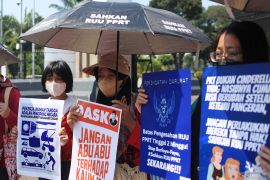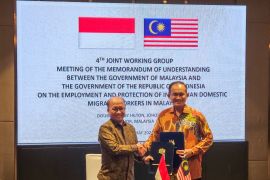Legal protection for the domestic worker profession in Indonesia has been pushed for a long time, and currently, it has gained ground.
On March 21, 2023, the House of Representatives (DPR) finally approved the domestic workers' protection bill (PPRT bill) as its initiative bill during the House’s 19th plenary meeting of the session period IV of the 2022-2023 session year.
After the plenary meeting, several elements of the community, such as the National Advocacy Network for Domestic Workers (JALA PRT), Perempuan Mahardika, and Institut Sarinah, expressed their gratitude for the new stage of the PPRT bill's journey in becoming a law that was started in 2004.
The approval of the PPRT bill as a DPR initiative bill comes as good news for Indonesia's domestic workers in the country and those employed abroad as migrant workers to get legal protection for their profession.
Member of Commission IX of the DPR Netty Prasetiyani Aher expressed her appreciation for the approval after the bill was earlier stuck in the parliament.
The approval of the PPRT Bill to become a DPR initiative bill is a significant point for Puan Maharani -- the first woman to serve as DPR speaker -- after previously passing the sexual violence crime law (TPKS law) and initiating the mother and child welfare bill (KIA bill).
PPRT Bill's Deliberations
Head of the Presidential Staff Office (KSP) Moeldoko welcomed the decision of making the PPRT bill a DPR initiative bill that is in accordance with President Joko Widodo's directive on January 18 regarding expediting the passage of the PPRT bill.
KSP, as part of the PPRT Bill Acceleration Task Force, gives its full support to the Ministry of Manpower, Ministry of Law and Human Rights, and Ministry of Women's Empowerment and Child Protection, as well as other relevant stakeholders, to immediately deliberate the PPRT bill with the DPR.
Deputy Speaker of the People's Consultative Assembly (MPR) Lestari Moerdijat noted that the problem inventory list (DIM) of the bill must be prepared carefully so that deliberations on the bill can run effectively to establish a legal basis for tackling challenges faced by domestic workers.
She also urged DPR members involved in the bill’s deliberations to absorb the inputs given by the community to improve the bill.
The implementation of the PPRT law would require a strong commitment from stakeholders, she emphasized.
"The PPRT law requires the support of all parties, starting from the government at the central and regional levels, the community, to law enforcement officials," she remarked.
All parties' support for the birth of the PPRT law is needed to encourage the state's presence in humanity, she added.
According to Chairperson of the PPRT Bill Work Committee Willy Aditya, the bill will start to be deliberated by the DPR and the government.
After the deliberations are completed and an agreement is reached, the bill will be ready to be ratified as law.
Meanwhile, Chairperson of the National Commission on Violence against Women (Komnas Perempuan) Andy Yentriyani noted that support from the public will determine the process and speed of deliberations on the PPRT bill.
She also called on the government and DPR to involve people with several followers on social media to promote and monitor the PPRT bill.
Recognition for Domestic Workers
Member of Komnas Perempuan Satyawanti Mashudi stated that the bill would recognize the status of domestic workers, providing protection to the female-dominated profession.
The bill also aims to anticipate modern slavery practices, such as long working hours, work without rest, and inadequate wages.
According to Komnas Perempuan, domestic workers' status as workers currently lacks legal basis.
Komnas Perempuan's record from 2005-2022 showed that 2,344 cases of violence against domestic workers were reported by service provider institutions partnered with the commission.
Additionally, the commission received 29 direct reports related to violence against domestic workers, such as physical violence and unpaid wages during the 2017-2022 period.
Komnas Perempuan and civil society alliances have submitted the DIM of the PPRT bill to the government.
They also support the deliberations of the PPRT bill through campaigns, advocacy, and lobbies, so that the bill can be deliberated in the DPR as soon as possible.
Komnas Perempuan is waiting for the legislature's goodwill as the commission, civil society and the government agreed that the bill's passage is crucial.
Being a domestic worker is challenging because they do not have the rights and responsibilities that are guaranteed by law, unlike corporate workers.
Domestic work is an informal job that is commonly based on an oral contract between the employer and the worker, with working hours and wages not regulated by law.
While some domestic workers have kind employers who fulfill their rights, many suffer because of their employers.
Therefore, the PPRT law's birth is expected to offer legal certainty to domestic workers as a profession, so that decent work for them can be realized.
Related news: Sending Presidential letter on PPRT Bill to DPR soon: Moeldoko
Related news: Public support to determine course of PPRT bill deliberations
Related news: Careful preparation needed for PPRT bill deliberations: MPR
Translator: Anita Permata, Raka Adji
Editor: Anton Santoso
Copyright © ANTARA 2023












